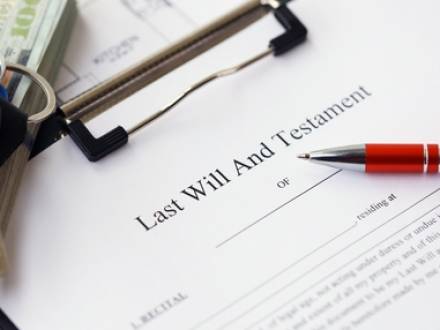Can You Disinherit an Adult Child in Texas – And Should You?
 Most adults put off estate planning as long as they possibly can. There are many reasons: not enough time, not enough assets, or a fear of facing one’s own mortality. In some cases, estate planning is delayed because a parent is struggling with the prospect of disinheriting an adult child. It is rarely an easy decision to disinherit a child, regardless of his or her age.
Most adults put off estate planning as long as they possibly can. There are many reasons: not enough time, not enough assets, or a fear of facing one’s own mortality. In some cases, estate planning is delayed because a parent is struggling with the prospect of disinheriting an adult child. It is rarely an easy decision to disinherit a child, regardless of his or her age.
The decision to disinherit could be due to estrangement, financial irresponsibility, a drug or alcohol problem, an untrustworthy spouse, or another type of family conflict. While some states have laws protecting children from being unintentionally omitted from a will, there are no states that outright prevent a parent from disinheriting an adult child, provided it is done properly. Of course, this assumes that a will or trust is in place.
A person who dies without a will is said to have died intestate, resulting in Texas state intestacy laws (Estates Code, Title 2, 201.001) dictating how the estate is distributed. There are specific legal requirements for disinheritance in Texas that must be followed, and it is also advisable to consider the emotional and practical implications of disinheriting an adult child. If you are considering disinheriting an adult child, it is extremely important that you speak to a knowledgeable Hood County, TX estate planning attorney.
How to Properly and Legally Disinherit an Adult Child in Texas
It should first be noted that minor children must be provided for in a will; however, a parent can make the decision to disinherit an adult child. Simply omitting the adult child’s name is not sufficient and can create ambiguity. Your intentions should be stated clearly, in unambiguous language. You must state that you are intentionally excluding the adult child from inheriting any part of your estate.
The goal is to make it clear that the omission was deliberate, rather than a mistake. You do not need to give a reason for disinheriting an adult child, although you can provide a short explanation if you choose. Remember, Texas is a community property state, which means assets acquired during the marriage are owned equally by both spouses. Your will must clearly address community property, and it is helpful if your spouse is on the same page regarding disinheriting your adult child.
You might also consider a no-contest clause. While not foolproof, it can be a deterrent against challenges to the will. In the case of a disinherited adult child who is already receiving nothing, a no-contest clause is less effective. This is because the clause states that if a beneficiary contests the will and loses, he or she forfeits any inheritance that would have been received. The will must be signed, witnessed, and meet all other legal requirements of the state.
If you are concerned about your will being contested, a trust is generally more difficult to contest than a will. Although not a legal requirement, it is a good idea to keep careful records of your reasons for disinheritance, including letters or notes, in the event of a challenge. Documentation can help demonstrate your intent while supporting the will’s validity.
What Could Go Wrong When You Disinherit an Adult Child?
Even with a no-contest clause, a disinherited adult child may challenge the will, perhaps by claiming lack of capacity or undue influence. The entire estate plan must work together cohesively with no ambiguous language or other poor estate planning documents. Consider the fact that disinheriting one child can cause lasting legal and emotional consequences for others in your family. In some cases, you might choose an alternative to a full disinheritance, like a smaller share, a conditional trust, or a trustee to manage distributions over time.
Contact a Hill County, TX Estate Planning Lawyer
If you are considering disinheriting an adult child, you need an experienced Tarrant County, TX estate planning lawyer from Cain & Kiel Law. Attorney Cain is the owner of Trinity Abstract & Title in Cleburne and has served as Cleburne’s Mayor since 2012. Call 817-645-1717 to schedule an initial attorney meeting.
We're Here When You're Ready
To set up a consultation with our attorneys and get the legal help you need, please call 817-645-1717 or fill out the form below:
The use of the Internet or this form for communication with the firm or any individual member of the firm does not establish an attorney-client relationship. Confidential or time-sensitive information should not be sent through this form.
I have read and understand the Disclaimer and Privacy Policy.

 817-645-1717
817-645-1717









